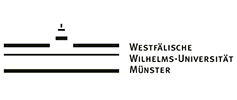The Obligation of the Constitutional Court of Indonesia to Give Consideration in the Process of Dissolution of Societal Organizations
DOI:
https://doi.org/10.31078/consrev416Keywords:
Constitutional Court of Indonesia, Dissolution of Societal Organizations, PancasilaAbstract
The government efforts to dissolve the societal organizations must be carried out in accordance of stages and processes stipulated in the Law on Societal Organizations. Persuasive efforts must be done first before the imposition of administrative sanctions. Administrative sanctions in the form of warning letters and temporary suspensions of activities need to be done before the Government dissolves the societal organizations after a court decision was obtained from the permanent legal force. The writer considered that the dissolution of societal organizations by the Government was urgent for the present, but the Government before dissolving societal organizations should seek consideration from the Constitutional Court of Indonesia as the guardian, and interpreter of Pancasila. Thus, the Constitutional Court of Indonesia as a neutral judicial institution shall have the authority to consider whether a societal organization will be dissolved.References
Ali, As’ad Said: Negara Pancasila: Jalan Kemashlahatan Berbangsa: Jakarta:
Pustaka LP3ES, 2009.
Alrasid, Harun: Naskah UUD 1945 Sesudah Empat Kali Diubah oleh MPR: Jakarta:
Universities Indonesia (UI-Press), 2007.
Amin, SM, Demokrasi Selayang Pandang, Jakarta: Pradnya Paramita, 1976.
Asshiddiqie, Jimly, dan Syahrizal, Ahmad, Peradilan Konstitusi di Sepuluh Negara:
Jakarta: Konstitusi Press, 2006.
Azhary, Muhammad Tahir: Beberapa Aspek Hukum Tata Negara, Hukum Pidana,
dan Hukum Islam: Menyambut 73 Tahun Prof. Dr. H. Muhammad Tahir
Azhary, S.H., Akademisi, Praktisi, dan Politisi: Jakarta: Kencana Prenada
Media Group, 2012.
Bagus, Lorens: Kamus Filsafat: Jakarta: Gramedia Pustaka Utama, 2000.
Bahar, Saafroedin, et.al, (Ed): Risalah Sidang Badan Penyelenggara Usaha Persiapan
Kemerdekaan Indonesia (BPUPKI)-Panitia Persiapan Kemerdekaan Indonesia
(PPKI) 28 Mei 1945-22 Agustus 1945. Jakarta: Sekretariat Negara Republik
Indonesia, 1995.
Bell, Daniel. Matinya Ideologi. Magelang: Indonesia Tera, 2001.
Eddyono, Luthfi. "Independence of Indonesian Constitutional Court in Norms
and Practices." Constitutional Review Journal 3, no. 1 (May 2017).
Faiz, Pan Mohamad. "The Protection of Civil and Political Right by the
Constitutional Court of Indonesia." Indonesian Law Review Journal 6, no.2
(May-August 2016).
Fatwa, A.M. "Potret Konstitusi Pasca Amandemen UUD 1945." Kompas Media
Nusantara, 2009.
Hadjon, Philipus M: Perlindungan Hukum Bagi Rakyat di Indonesia: Surabaya:
Bina Ilmu, 1987.
Indonesia, 1945 Constitution of the State of the Republic of Indonesia.
________, Law No.8 of 1985 on Societal Organization.
________, Law No. 17 of 2013 on Societal Organization.
_________, Government Regulation No. 18 of 1986 on the implementation of
Law No. 8 of 1985 on Societal Organizations.
Kania Winayanti, Nia: Dasar Hukum Pendirian dan Pembubaran Ormas
(Organisasi Kemasyarakatan): Yogyakarta: Pustaka Yustisia, 2011.
_________, "Makna Pasal 28 UUD 1945 terhadap Kebebasan Berserikat dalam
Konteks Hubungan Industrial." Jurnal Konstitusi 8, no.6 (2011).
Kartodihardjo, Soewargo: Asas-Asas Hukum Tata Negara: Yogyakarta: Fakultas
Hukum Universitas Gajah Mada, 1983.
Latie, Yudi. "Pancasila Sakti." Gatra, October, 2011.
Marzuki, Suparman, et.al: Hukum Hak Asasi Manusia: Yogyakarta: Pusat Studi
Hak Asasi Manusia Universitas Islam Indonesia, 2008.
MD, Moh. Mahfud: Politik Hukum di Indonesia. Jakarta: Rajawali Pers, 2010.
“Memproteksi NKRI”, Media Indonesia, 15 Mei 2017.
Mertokusumo, Sudikno: Penemuan Hukum: Sebuah Pengantar: Yogyakarta:
Liberty, 2009.
n.d. "HTI DIbubarkan, Yusril Ihza: Pemerintah Bisa Kalah di Pengadilan," Tempo,
Mei 22, 2017.
nd. "Pemerintah Diadukan ke Komnas HAM." Republika, May 13, 2017.“
nd. "Pemerintah Tak Akan Kompromi." Kompas, May 13, 2017.
nd. "Pemerintah Harus Ambil Langkah Cepat." Kompas, May 17, 2017.
Nugroho, Riant D: Kebijakan Publik, Formulasi, Implementasi dan Evaluasi:
Jakarta: Elex Media Komputindo, 2003.
Perwira, Indra: Pembatasan Hak Berserikat, dan Berkumpul, Article, No Year,
and No Publisher.
Priyanto, At. Sugeng: Dinamika Ideologi Partai Politik Keagamaan Pada Masa
Orde Baru: Yogyakarta: Magnum Pustaka Utama, 2015.
RI, Departemen Pendidikan, dan Kebudayaan, Direktorat Jenderal Pendidikan
Tinggi, UUD 1945, P4, GBHN, TAP-TAP MAPR 1983, Pidato Pertanggungjawaban
Presiden/Mandataris, Bahan Penataran, dan Bahan Referensi Penataran.
Jakarta: Direktorat Jenderal Pendidikan Tinggi Departemen Pendidikan,
dan Kebudayaan, 1984.
RI, Dewan Perwakilan Rakyat, Catatan Panitia Khusus Lima Rancangan Undang-
Undang Tentang Politik, Tanggal 10 Januari 1985, Jakarta: Sekretariat Jenderal
DPR RI, 1985.
_________________________, Catatan Panitia Khusus Lima Rancangan Undang-
Undang Tentang Politik, Tanggal 11 Januari 1985, Jakarta: Sekretariat Jenderal
DPR RI, 1985.
_________________________, Catatan Rapat Panitia Khusus Lima Rancangan
Undang-Undang Partai Politik, dan Golongan Karya, Tanggal 4 Februari
1985, Jakarta: Sekretariat Jenderal DPR RI, 1985.
Romli, Lili: Islam Yes Partai Islam Yes: Sejarah Perkembangan Partai-Partai Islam
di Indonesia: Yogyakarta: Pustaka Pelajar dengan Pusat Penelitian Politik
LIPI, 2006.
Safaat, Muchamad Ali. "Pembubaran Partai Politik di Indonesia." Ph.D Diss.,
University of Indonesia, 2009.
Soehino: Ilmu Negara: Liberty: Yogyakarta, 1980.
Sutiyoso, Bambang, dan Puspitasari, Sri Hastuti: Aspek-Aspek Perkembangan
Kekuasaan Kehakiman di Indonesia: Yogyakarta: UII Press, 2005.
Thalib, Abdul Rasyid: Wewenang Mahkamah Konstitusi dan Implikasinya dalam
Sistem Ketatanegaraan Republik Indonesia: Bandung: PT Citra Aditya Bakti,
2006.
Wahjono, Padmo: Indonesia Negara Berdasarkan Atas Hukum: Jakarta: Yudhistira
Ghalia Indonesia, 1983.
Pustaka LP3ES, 2009.
Alrasid, Harun: Naskah UUD 1945 Sesudah Empat Kali Diubah oleh MPR: Jakarta:
Universities Indonesia (UI-Press), 2007.
Amin, SM, Demokrasi Selayang Pandang, Jakarta: Pradnya Paramita, 1976.
Asshiddiqie, Jimly, dan Syahrizal, Ahmad, Peradilan Konstitusi di Sepuluh Negara:
Jakarta: Konstitusi Press, 2006.
Azhary, Muhammad Tahir: Beberapa Aspek Hukum Tata Negara, Hukum Pidana,
dan Hukum Islam: Menyambut 73 Tahun Prof. Dr. H. Muhammad Tahir
Azhary, S.H., Akademisi, Praktisi, dan Politisi: Jakarta: Kencana Prenada
Media Group, 2012.
Bagus, Lorens: Kamus Filsafat: Jakarta: Gramedia Pustaka Utama, 2000.
Bahar, Saafroedin, et.al, (Ed): Risalah Sidang Badan Penyelenggara Usaha Persiapan
Kemerdekaan Indonesia (BPUPKI)-Panitia Persiapan Kemerdekaan Indonesia
(PPKI) 28 Mei 1945-22 Agustus 1945. Jakarta: Sekretariat Negara Republik
Indonesia, 1995.
Bell, Daniel. Matinya Ideologi. Magelang: Indonesia Tera, 2001.
Eddyono, Luthfi. "Independence of Indonesian Constitutional Court in Norms
and Practices." Constitutional Review Journal 3, no. 1 (May 2017).
Faiz, Pan Mohamad. "The Protection of Civil and Political Right by the
Constitutional Court of Indonesia." Indonesian Law Review Journal 6, no.2
(May-August 2016).
Fatwa, A.M. "Potret Konstitusi Pasca Amandemen UUD 1945." Kompas Media
Nusantara, 2009.
Hadjon, Philipus M: Perlindungan Hukum Bagi Rakyat di Indonesia: Surabaya:
Bina Ilmu, 1987.
Indonesia, 1945 Constitution of the State of the Republic of Indonesia.
________, Law No.8 of 1985 on Societal Organization.
________, Law No. 17 of 2013 on Societal Organization.
_________, Government Regulation No. 18 of 1986 on the implementation of
Law No. 8 of 1985 on Societal Organizations.
Kania Winayanti, Nia: Dasar Hukum Pendirian dan Pembubaran Ormas
(Organisasi Kemasyarakatan): Yogyakarta: Pustaka Yustisia, 2011.
_________, "Makna Pasal 28 UUD 1945 terhadap Kebebasan Berserikat dalam
Konteks Hubungan Industrial." Jurnal Konstitusi 8, no.6 (2011).
Kartodihardjo, Soewargo: Asas-Asas Hukum Tata Negara: Yogyakarta: Fakultas
Hukum Universitas Gajah Mada, 1983.
Latie, Yudi. "Pancasila Sakti." Gatra, October, 2011.
Marzuki, Suparman, et.al: Hukum Hak Asasi Manusia: Yogyakarta: Pusat Studi
Hak Asasi Manusia Universitas Islam Indonesia, 2008.
MD, Moh. Mahfud: Politik Hukum di Indonesia. Jakarta: Rajawali Pers, 2010.
“Memproteksi NKRI”, Media Indonesia, 15 Mei 2017.
Mertokusumo, Sudikno: Penemuan Hukum: Sebuah Pengantar: Yogyakarta:
Liberty, 2009.
n.d. "HTI DIbubarkan, Yusril Ihza: Pemerintah Bisa Kalah di Pengadilan," Tempo,
Mei 22, 2017.
nd. "Pemerintah Diadukan ke Komnas HAM." Republika, May 13, 2017.“
nd. "Pemerintah Tak Akan Kompromi." Kompas, May 13, 2017.
nd. "Pemerintah Harus Ambil Langkah Cepat." Kompas, May 17, 2017.
Nugroho, Riant D: Kebijakan Publik, Formulasi, Implementasi dan Evaluasi:
Jakarta: Elex Media Komputindo, 2003.
Perwira, Indra: Pembatasan Hak Berserikat, dan Berkumpul, Article, No Year,
and No Publisher.
Priyanto, At. Sugeng: Dinamika Ideologi Partai Politik Keagamaan Pada Masa
Orde Baru: Yogyakarta: Magnum Pustaka Utama, 2015.
RI, Departemen Pendidikan, dan Kebudayaan, Direktorat Jenderal Pendidikan
Tinggi, UUD 1945, P4, GBHN, TAP-TAP MAPR 1983, Pidato Pertanggungjawaban
Presiden/Mandataris, Bahan Penataran, dan Bahan Referensi Penataran.
Jakarta: Direktorat Jenderal Pendidikan Tinggi Departemen Pendidikan,
dan Kebudayaan, 1984.
RI, Dewan Perwakilan Rakyat, Catatan Panitia Khusus Lima Rancangan Undang-
Undang Tentang Politik, Tanggal 10 Januari 1985, Jakarta: Sekretariat Jenderal
DPR RI, 1985.
_________________________, Catatan Panitia Khusus Lima Rancangan Undang-
Undang Tentang Politik, Tanggal 11 Januari 1985, Jakarta: Sekretariat Jenderal
DPR RI, 1985.
_________________________, Catatan Rapat Panitia Khusus Lima Rancangan
Undang-Undang Partai Politik, dan Golongan Karya, Tanggal 4 Februari
1985, Jakarta: Sekretariat Jenderal DPR RI, 1985.
Romli, Lili: Islam Yes Partai Islam Yes: Sejarah Perkembangan Partai-Partai Islam
di Indonesia: Yogyakarta: Pustaka Pelajar dengan Pusat Penelitian Politik
LIPI, 2006.
Safaat, Muchamad Ali. "Pembubaran Partai Politik di Indonesia." Ph.D Diss.,
University of Indonesia, 2009.
Soehino: Ilmu Negara: Liberty: Yogyakarta, 1980.
Sutiyoso, Bambang, dan Puspitasari, Sri Hastuti: Aspek-Aspek Perkembangan
Kekuasaan Kehakiman di Indonesia: Yogyakarta: UII Press, 2005.
Thalib, Abdul Rasyid: Wewenang Mahkamah Konstitusi dan Implikasinya dalam
Sistem Ketatanegaraan Republik Indonesia: Bandung: PT Citra Aditya Bakti,
2006.
Wahjono, Padmo: Indonesia Negara Berdasarkan Atas Hukum: Jakarta: Yudhistira
Ghalia Indonesia, 1983.
Downloads
Published
2018-05-31
How to Cite
Ahmad Saifulloh, P. P. (2018). The Obligation of the Constitutional Court of Indonesia to Give Consideration in the Process of Dissolution of Societal Organizations. Constitutional Review, 4(1), 131–156. https://doi.org/10.31078/consrev416
Issue
Section
Articles
































































